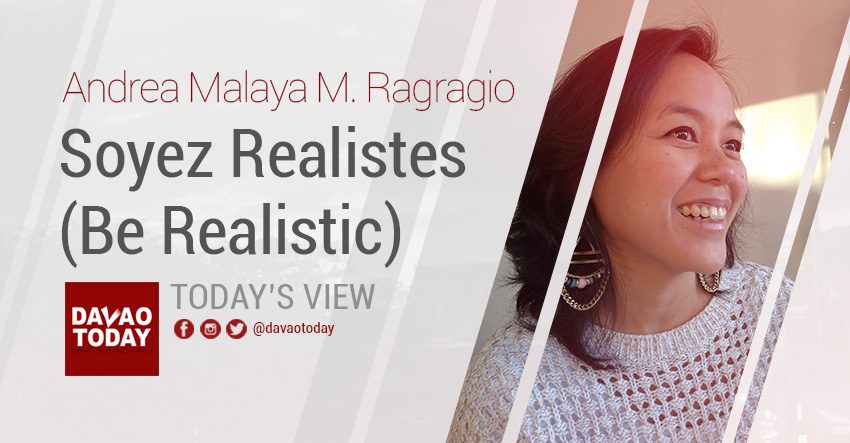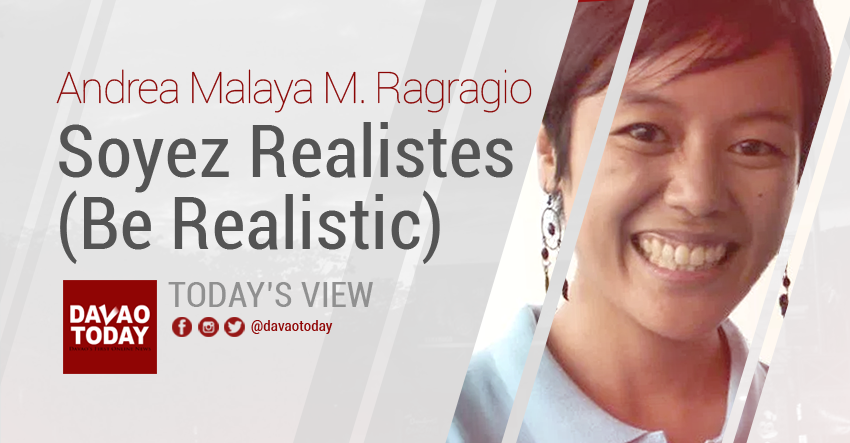What gives chismis, as a social phenomenon, its potency is not mostly its play with “untruths”, but because it facilitates, in a refracted manner, the expression of the often inexpressible framing of things held by many in a given community.
Author Archives: ANDREA MALAYA M. RAGRAGIO
Among the Pantaron Manobo communities I work with, for example, the use of surnames was a relatively recent development that came with State census-taking, and was further regularized by formal schooling. For many of my friends, their current surnames are actually the personal name of an admired or respected ancestor that were picked for this purpose. But similar to our own practice, these ancestors whose names were re-adapted were almost always male.
We recently heard of the shocking discovery of the grave of 215 children found on the grounds of the Kamloops Indian Residential School in British Columbia, Canada. The children belonged to Indigenous communities, and were forcibly enrolled in such schools as part of the Canadian government’s policy of cultural assimilation.
When the pantries first came out, it was easy to call them charity because of their no-strings-attached giving away to those most in need. But many countered by casting this (approvingly, too) more properly as socialism.
Datu Benito Bay-ao was one of the Lumad leaders who were taken into custody after that disgraceful raid at the Bakwit School in Cebu City. Just six years ago, Dats Bens (as we call him) spoke with pride and optimism in this documentary about their Lumad school in their village of Dulyan, and across the other upland villages in the Pantaron under the Salugpongan Ta Tanu Igkanugon organization. Schooling in the cities made them ashamed of, and forget about, being a Lumad, he said. But with their schools built right in their domain, young Lumad could learn while keeping their tradition alive.
It is supremely dissonant that, on what is supposedly Indigenous Peoples’ Month in the Philippines, the local police of the province of Kalinga proposes to demolish the monument to three historical figures to the Indigenous struggles of the Cordillera region.
Before Women’s Month ends, I’d like to take up an important development in the struggle for the rights and welfare of women and girls in the Philippines. Early in March, Sen. Risa Hontiveros had filed Senate Bill 162, or a bill seeking to end child marriages.
The situation we are in is unmatched by anything in living memory. There is a lot of uncertainty and fear. And as the physical spaces we move around in become more limited, many of us have turned to cyberspace to ask questions, to seek solace, and to let out frustration and anger.
When we think of death and what comes after, we often only think about how we grieve and seek closure, of how our loved ones are in a better place, of finding solace in beliefs. But death is also highly political, and for victims of state violence these personal processes become entangled with social processes of pursuing justice, contesting “official” narratives, and going against the full weight of governmental powers that can still control us long after we have left this world.
Recently, a student political organization at the Ateneo de Davao University (ADDU) was called out on social media for misquoting an article by a faculty member of UP Cebu in the organization’s official statement about the recent attack on the Haran evacuation center. ADDU’s PIGLASAPAT took down their statement and apologized to Prof. Regletto Imbong after the latter posted on both Facebook and Twitter about what he called as a ‘misrepresentation’ of his study, or “at worst, a lack of genuine scholarship.”


